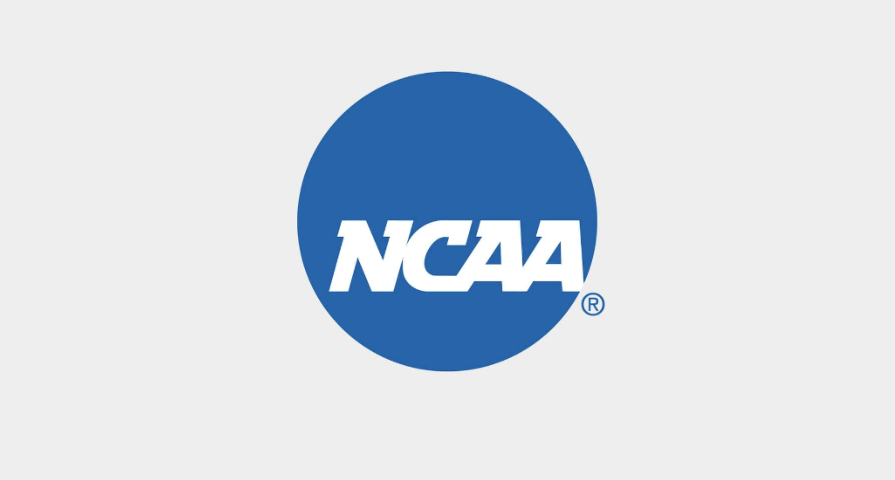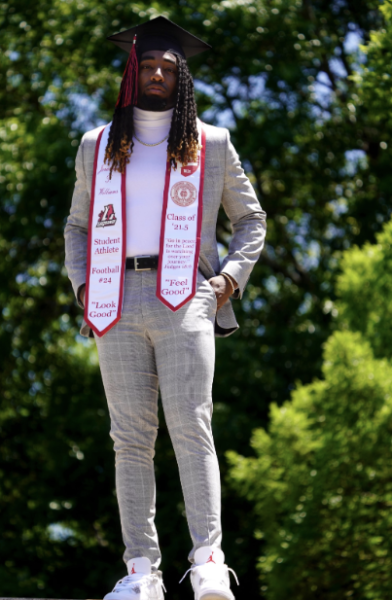Erie, Pa., — In life, I’ve learned that there are three things you can count on: death, taxes, and the NCAA making decisions that are completely tone-deaf and outside of the best interests of their student-athletes.
While multiple instances of this may come to mind, there are three that have come up recently regarding the same issue— transfer eligibility. In the last two months, the NCAA has denied eligibility waivers for Tyler Brown (Jackson State to Colorado), Tez Walker (Kent State to North Carolina), and Darrell Jackson Jr. (Miami to Florida State).
The NCAA has a one-time transfer exemption, that each of these three players has used, which allows players one free transfer with immediate eligibility afterward. From that point on, immediate eligibility for any subsequent transfers would have to be applied for by submitting a waiver to the NCAA, where they get to assess the reason, you transferred and whether it’s worthy of exemption. Otherwise, a player on their second transfer would be required to sit out for a full year before they are allowed to play.
This seems straightforward, however when looking at the criteria for having a transfer waiver approved, and the history of waivers that have been approved, you will find that the NCAA is quite inconsistent when it comes to these matters.
In each of these three cases, they go beyond inconsistency and move more towards a complete lack of compassion for the student-athlete and a blatant disregard for their criteria.
Take Tez Walker’s case for instance. Tez Walker graduated from West Charlotte High School in Charlotte, NC, and originally attended North Carolina Central University for one year. However, he never played due to the program’s season being canceled in 2020 due to Covid. He then transferred to Kent State where he played for two seasons until his head coach left to take the position of Offensive Coordinator at Colorado.
After losing his head coach, he then decided to transfer back closer to his hometown of Charlotte and attend the University of North Carolina. This transfer also placed Walker closer to his grandmother, who has been dealing with health issues that wouldn’t allow her to travel to see him play at Kent State—a reason Walker cited for choosing UNC. Walker began classes at UNC on January 9th, and on January 11th, the NCAA Division I Council approved changes to the four-year college transfer waiver guidelines.
The changes eliminated all current transfer guidelines except for three: student-athlete physical injury or illness, student-athlete mental health, and diagnosed education-impacting disabilities. Walker submitted his waiver under the mental health aspect of the guidelines, citing being away from his grandmother as a cause of mental stress, and he had even met with the head Kent State Athletic Trainer to discuss these issues before he entered the transfer portal. Still, the NCAA denied both his waiver and his appeal of that denial, ruling him ineligible for the 2023 season, despite a world of backlash from UNC and the rest of the sports world.
That’s just one instance of the NCAA completely lacking compassion for their student-athletes. Tyler Brown began his career at Louisiana-Lafayette.
While there, he became remarkably close with Offensive Line Coach D.J. Looney. Unfortunately, Brown had to witness Looney tragically pass away on the field due to a heart attack. Remaining at ULL reminded Brown too much of that tragic event, so he transferred to Jackson State under Head Coach Deion Sanders—affectionately known as Coach Prime.
He then became close to Coach Prime before getting injured, and then Coach Prime took the head coaching job at Colorado. Naturally, having grown attached to yet another coach and attempting to avoid the mental health struggles of having to play for a third coaching staff, Brown attempted to follow Coach Prime to Colorado. However, of course, the NCAA denied his waiver.
Then there’s Darrell Jackson Jr., who started his career at Maryland before transferring to Miami. He then transferred to Florida State, 20 minutes from his hometown, to be closer to his sick mother. You can imagine what the NCAA did to his eligibility waiver.
For an organization that claims to care about the health and well-being of their student-athletes, and for an organization that claims to care about mental health, their decisions in these cases don’t reflect that level of care.
These cases look extremely bad when compared to the instances of players being granted immediate eligibility for no other reasons than athletic gain like Tate Martell (Ohio State to Miami to UNLV), or JT Daniels (Southern Cal to Georgia to West Virginia to Rice).
Nobody wants a transfer chaotic situation in college football, however, as a two-time NCAA transfer myself, I strongly believe the NCAA could benefit from using some discretion when it comes to these waiver situations. Otherwise, they will just continue to prove correct the notion that their organization doesn’t care about the student-athletes that they claim to operate in the best interests of.






Thomas Williams • Sep 22, 2023 at 9:34 am
You can’t punish a kid for leaving a school because his circumstances or reasons for coming there have changed. Once the season is over and if the player still has eligibility left to play, then let him or her go and purse whatever opportunity is best suited for their life.